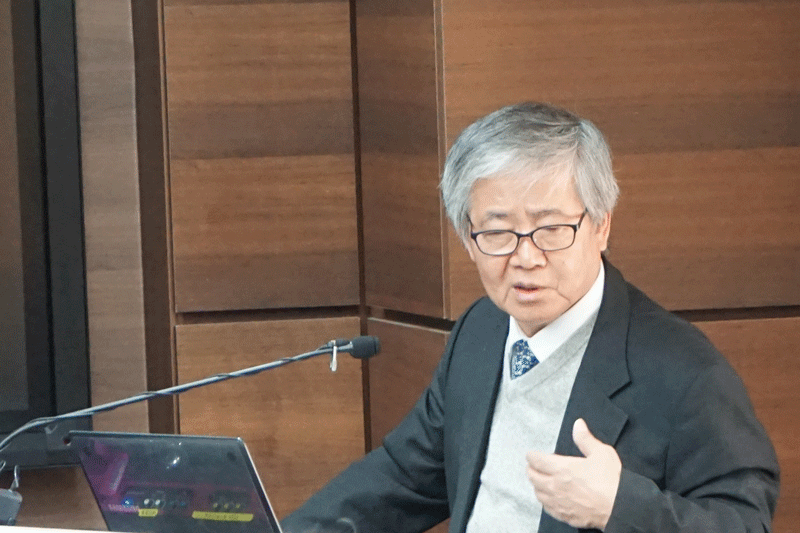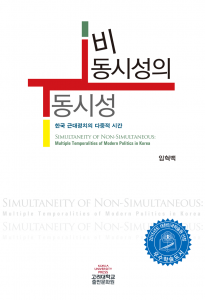
2017 ICAS Book Prize in Korean : Book Talk Series 4

- Date & Time: Thursday, 23 November, 14:00-16:00
- Location: Room #303, SNUAC(Bldg#101)
- Inquiry: Nahyun Lee / +82-2-880-2868 / julianalee@snu.ac.kr
About
 Shortlisted for IBP 2017 Korean Language Edition
Shortlisted for IBP 2017 Korean Language Edition
[Simultaneity of Non-Simultaneous: Multiple Temporalities of Modern Korean Politics], Hyug Baeg Im, Korea University Press, 2014.
Author : Hyug Baeg Im
● Professor emeritus, Korea University
● Chair professor, Gwangju Institute of Science and Technology
Major Publications
-『The Possibility of Peace in the Korean Peninsula』 (2017)
-『Mongering North Korean Democracy for Inter-Korean Peace』 (2015)
This book theorizes and analyzes one hundred years of Korean politics from the Japanese colonial period in the early 20th century to the Lee Myung-bak government in the early 21st century. In particular, this book pays attention to aspects of Korean politics that are not easily explained by any single framework of feudality, pre-modernity, or modernity, and tries to capture the complexity with Ernst Bloch’s concept of “the simultaneity of the non-simultaneous”. The concept of the simultaneity of the non-simultaneous can be used to capture a phenomenon that is not easily accounted for by a single coherent theoretical framework. It becomes more useful when trying to find a certain order amongst complex historical phenomena that developed over a very long period of time. This study also adopts concepts from Weber’s political sociology, including the will to power, authority, ideology, domination, war, and others, and mobilizes theory from many other great thinkers to describe Korean political history, including Aristotle, Confucius, Dasan Jeong Yak-yong, and Master Wonhyo. It also serves as a research guide for students by providing historical reviews of a range of topics. Korean politics has gone through modernization, industrialization, democratization, and post-modernization combined with an IT revolution in a very short period of time. It is not easy to explain such complex dynamics in a single and universal political theory. It is highly commendable that the author attempts to capture the complexity with the concept of the simultaneity of the non-simultaneous. At the same time, it shows the development of Korean scholarship in the field, which is making efforts to explain the complexity of Korea with its own theory.
